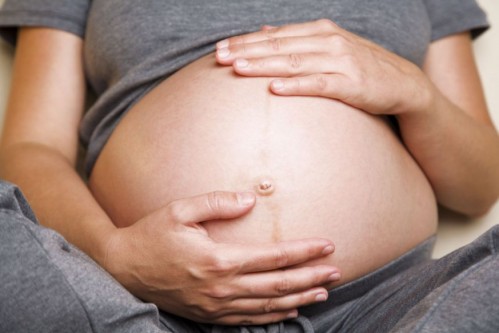Statistics suggest that around 1 in 7 women experience postpartum depression after giving birth. Characterized by long-lasting symptoms (generally longer than a couple of weeks), those suffering from the condition may experience symptoms like fatigue, anxiety, mood swings, insomnia, and trouble bonding with baby. It affects women of all ages, income levels, and ethnicities. There are some commonalities, however. For example, women depression are more likely to experience PPD. Now a new study suggests that gestational diabetes may also be an independent risk factor.
“Most practitioners think of these as two isolated and very different conditions, but we now understand gestational diabetes and postpartum depression should be considered together,” Dr. Michael E. Silverman, PhD, assistant professor of psychiatry at the Icahn School of Medicine at Mount Sinai in New York City, said in a press release.
Published in the online version of Depression and Anxiety, the recent study is the largest to date on the connection between PPD and its risk factors. That is to say, the study was the largest to examine how prevalent PPD is in those that have certain risk factors, such as a history of depression or gestational diabetes. It included a sampling of 707,701 first-time, singleton births from the Swedish Medical Birth Register. All births took place between 1997 and 2008.
Study Results
In total, the researchers found 4,397 cohort cases of PPD within the first year. It also included any diagnoses of major depressive disorder, depressive disorder, and unspecified episodic mood disorder that occurred within a year of the mother’s birth.
A history of pre-pregnancy depression was found to drastically increase a woman’s risk of being diagnosed with a depression disorder, including PPD, within the first year of birth – about 1,154 cases per 10,000 patients compared to just 42 cases per 10,000 for those that did not have a history of pre-pregnancy depression.
Gestational diabetes and presentational diabetes were also found to significantly increase the risk of PPD and other depressive disorders within the first year of giving birth. This remained true, even if the mothers did not have a history of pre-pregnancy depression. Women over the age of 35 were also more at risk, regardless of whether they had a history of depression or not. However, the most at risk group seemed to be those that had a combination of issues. For example, those that had a history of pre-pregnancy depression and gestational or pregestational diabetes.
“While having diabetes increases PPD risk for all women, for those women who had a past depressive episode, having diabetes during pregnancy makes it 70 percent more likely that they will develop PPD,” Silverman said.
Surprising Evidence
Although a history of depression has long been considered a risk factor for PPD, the researchers were surprised to see just how strong of a predictor it was for PPD.
“We were surprised, not only to the extent that a history of depression predicts postpartum depression, but more so how few postpartum depression cases occurred without a history of depression,” Silverman said. “That is, postpartum depression without a depression history is far rarer than we, and I think anyone, expected.”
The link to presentational diabetes was also a surprising find – not so much because the link existed in the first place, but because it seemed to only be an issue when women also had a history of depression.
“It was a surprise that presentational diabetes was only and issue with a depression history,” Silverman said. “I say this because there is a well-understood link between depression and diabetes, so women with no history of depression who have [pre-gestational] diabetes seems to be a postpartum-resilient population.”
A Call for More Research
Though the researchers are confident in their finding of the link, they say it is critical that more research is done to determine the role of mechanisms in PPD. Furthermore, they believe that there could be a strong correlation between inflammatory conditions and depression, which could explain some of the link between gestational diabetes and PPD, as well as some other risks factors that they found, such as certain neonatal complications during birth.
“We know there is a strong relationship between inflammatory cytokines and depression – even for those who are otherwise medically healthy – and between the cytokines and diabetes, diabetes and depression during pregnancy are independently associated with obstetric complications, preterm birth, and neonatal complications, among other things,” Silverman said. “Obviously, association does not imply causality, but we do know that inflammatory cytokines have profound effects on hormonal and neurotransmitter metabolism in brain areas that regular emotion, such as the HPA axis.”
So what are the potential benefits to a better understanding of the links and predictors for PPD? Researchers say the biggest is being able to catch women before they give birth to help mitigate the possibility of PPD long before it becomes a problem.
“Depressed women don’t always return for postpartum care, which includes depression screenings,” Silverman said. “[But] based on these new findings, we believe the vast majority of women who will develop postpartum depression can be captured before they give birth by asking about their history of depression and monitoring for diabetes . . . These women can be identified and interventions can be administered before the depression occurs.”







